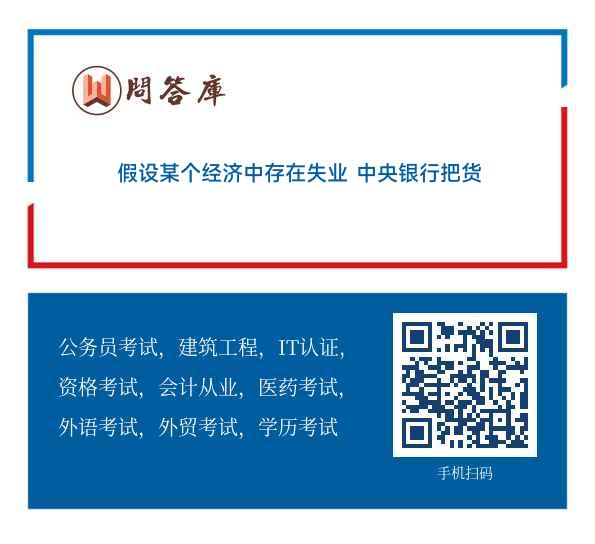假设某个经济中存在失业 中央银行把货币供给增加1倍。在长期中 经济恢复到充分就业状态 产出回
问题详情
假设某个经济中存在失业,中央银行把货币供给增加1倍。在长期中,经济恢复到充分就业状态,产出回到充分就业水平。假定在货币供给增加之前,利率等于长期利率,那么,长期价格水平上涨的幅度是大于还是小于货币供给增加的幅度?如果最初利率低于长期水平,情况又会如何?
Imagine that the central bank of an economy with unemployment doubles its money supply.In the long run,full employment is restored and output returns to its full employment level.On the (admittedly unlikely)assumption that the interest rate before the money supply increase equals the long-run interest rate,is the long-run increase in the price level more than proportional or less than proportional to the money supply change? What if(as is more likely)the interest rate was initially below its long-run level?
参考答案
因为利率在货币供给增加前后都相同,即都等于长期利率,所以充分就业时的实际货币供给量必定大于非充分就业时的实际货币供给量,可知价格上涨幅度小于货币供给量增加幅度。
如果初始利率低于长期水平,无法确定长期价格水平上涨幅度是小于还是大于货币供给量增加幅度。因为,随着货币供给量的增加,由于初始利率低于长期水平,所以最终利率会升高,同时产出会提高到长期水平,这两者对实际货币需求量的影响是相反的,因此无法确定最后实际货币需求量是增加还是减少,也无法确定长期价格上涨幅度大于还是小于货币供给量增加幅度。
